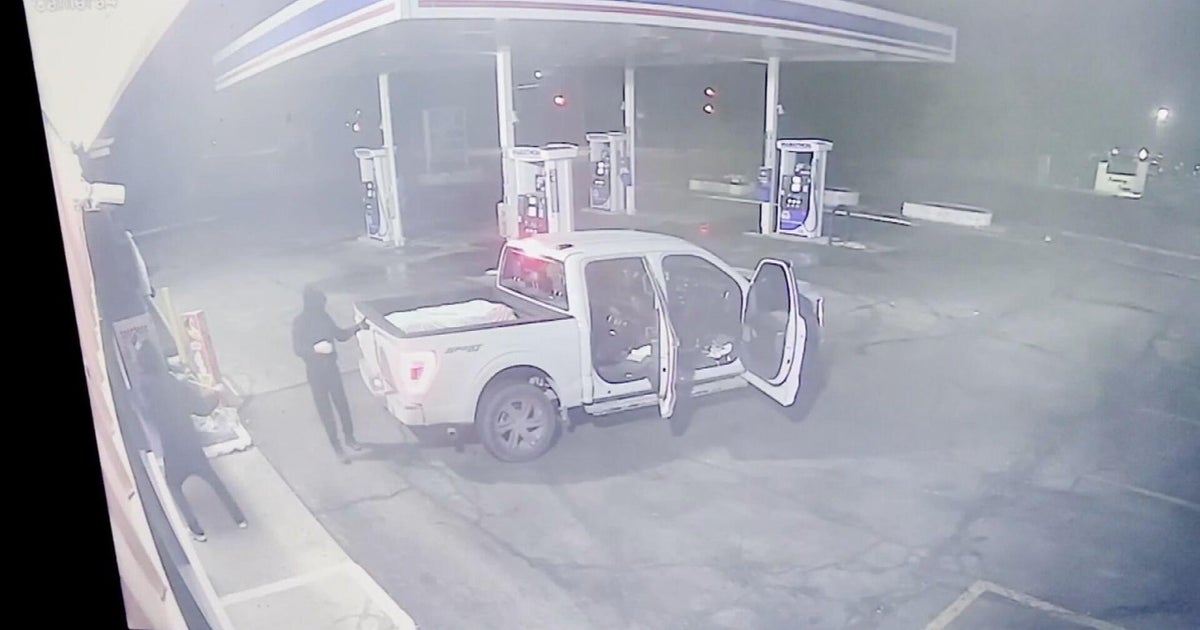Feds Probing Potential Links Between Vaping, Lung Illnesses
NEW YORK (CBSNewYork) -- There has been a disturbing increase in severe lung illnesses possibly linked to vaping.
Federal health officials are investigating around 150 cases, mostly in adolescents and young adults. As CBS2's Dr. Max Gomez reported Thursday, the common tie seems to be e-cigarettes.
E-cigarettes that were thought to be a safer alternative to smoking. Vaping was originally touted as a way to wean a smoker off cigarettes by giving them the same nicotine hit they'd get from smoking. Then fruity flavors were added to the nicotine and teens got into vaping.
MORE: CDC Launches Investigation Into Nearly 100 Illnesses Linked To Vaping
"I could just feel my heart just pounding out of my chest, going a hundred miles an hour," Tryston Zohfeld said.
For 10 days machines kept 17-year-old Zohfeld alive, while doctors tried to determine why this formerly healthy, athletic teen's lungs were failing.
"I think the day they intubated him was probably the worst day of my life," Matt Zohfeld, Tryston's father. "They did the x-ray and it was completely cloudy, all the way through the lungs."
After multiple tests yielded no clear diagnosis, doctors concluded that Tryston's vaping habit, which his parents didn't even know about, might be responsible.
"I was introduced to it in eighth or ninth grade. So I've been doing it for a couple years now," Tryston said.
"He caused enough irritation and damage to his lungs that he actually ended up with scarring in his lungs," said Dr. Karen Schultz, the director of pulmonology of Cook Children's Medical Center.
MORE: Unexplained Vaping-Associated Illnesses Prompt Health Advisory In New York
The Centers for Disease Control and Prevention and the Food and Drug Administration are now reporting a much larger "cluster of pulmonary illnesses possibly related to e-cigarette product use, or 'vaping,' primarily among adolescents and young adults."
"There has been an astronomical increase of teens and young adults who are using e-cigarettes. We're also seeing a lot of teens with use that implies they have very high levels of addiction," said Dr. Susan Walley, professor of pediatrics at the University of Alabama.
MORE: Parents, Advocates Protest Teen Vaping Outside JUUL Offices In Manhattan
The CDC says no specific vaping product has been conclusively linked to all the illnesses. In a statement to CBS News, leading e-cigarette manufacturer Juul says it is "monitoring these reports and we have robust safety monitoring systems in place." Reporting also suggests the teenagers were "vaping both nicotine and THC, a schedule 1, controlled substance that we do not sell."
The CDC says in many cases patients did tell health officials they had recently used vaping products with THC, an active ingredient in marijuana, in addition to traditional e-cigarettes with nicotine.
"E-cigarettes are not safe. We're seeing some very, very concerning health effects and we really don't know exactly what the long-term data is going to show," Dr. Walley said.
It's a common misconception that vaping is safer than cigarettes because it doesn't contain the tar and numerous other carcinogenic compounds in cigarette smoke. The truth is we don't know if vaping is safer because the many compounds in electronic vapor haven't been well studied. It's all too new.








